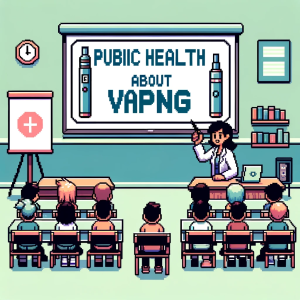
Cannabis for Coping and the Onset of Paranoia
In recent years, cannabis has gained popularity for its medicinal properties as well as its ability to provide recreational relief. However, hidden within its appeal are significant mental health risks that users may not be fully aware of. According to a recent study published on ScienceDaily, those who turn to cannabis for self-medication could be unknowingly inviting paranoia into their lives.
Exploring the Impact of THC
The primary psychoactive component of cannabis, THC (tetrahydrocannabinol), is known for its mind-altering effects. While many users see THC as an avenue to relaxation and stress relief, it can paradoxically increase levels of paranoia and anxiety.
THC produces its psychoactive effects by binding to cannabinoid receptors in the brain, which influences pleasure, memory, thinking, concentration, movement, coordination, as well as sensory perception and the perception of time.
A research study by the University of Oxford confirms this paradox. Using controlled studies involving the administration of THC, researchers have tied its intake to heightened levels of paranoia, particularly among individuals who have experienced high levels of stress or trauma, especially emotional abuse. The study postulates that while THC may initially relieve tension, certain individuals may find themselves in an extended state of paranoia as a result. Read the Ox.A.C. study here.
Self-Medication: A Double-Edged Sword
For many, cannabis provides a form of escape from the day-to-day stresses of modern life. Yet, for those using it as a coping mechanism, especially individuals with pre-existing mental health conditions, cannabis can exacerbate symptoms such as paranoia, anxiety, and depression. Paranoia is often characterized by irrational and persistent feelings that others are out to get you. This delusional thinking can be exacerbated by the long-term and frequent use of cannabis.
According to a piece by Healthline, paranoia forms part of a wider umbrella of psychotic symptoms linked to cannabis use. Use of products containing higher THC levels rather than balanced CBD-to-THC ratios results in more severe effects on paranoia.
Psychological Frameworks and Theories
Certain psychological frameworks suggest that cannabis users are more susceptible to paranoia when environmental factors predispose them to negative thinking. The significant increase in THC consumption affects how the brain processes information, thus some individuals might misapprehend benign situations, escalate negative thoughts, and succumb to unfounded fears.
Furthermore, cannabis can interfere with cognitive functions and neurochemical processes, compromising the brain’s coping mechanism and working memory. Individuals with trauma, especially childhood trauma, are more susceptible to cannabis-induced paranoia, making it a dangerous self-medicating agent. Emotional abuse and other adverse childhood experiences (ACEs) can have compounding effects, intensifying paranoia when cannabis is introduced. This connection is particularly strong, and those with such pre-existing vulnerabilities are advised to consult mental health professionals before using cannabis.
Mitigating Paranoia: Balancing CBD and THC
As cannabis research evolves, understanding the balance between different cannabinoids such as CBD and THC is vital. High-CBD strains can help counterbalance the anxiety or paranoia provoked by THC. Researchers are developing substances and treatments that tap into cannabis’ medical potential while curtailing its psychotic downsides.
Final Thought
The topic of using cannabis for coping with mental health issues is controversial. Research highlights both its potential benefits and drawbacks. As society becomes more aware of mental health challenges, it’s important to use cannabis cautiously, particularly for individuals with a history of trauma or mental health conditions. Consulting healthcare providers about alternative therapies and seeking medical guidance is essential for ensuring safe and effective treatment options.
For users and policymakers alike, it’s essential to maintain a balanced conversation about cannabis with comprehensive studies and proactive discourse driving the agenda.



